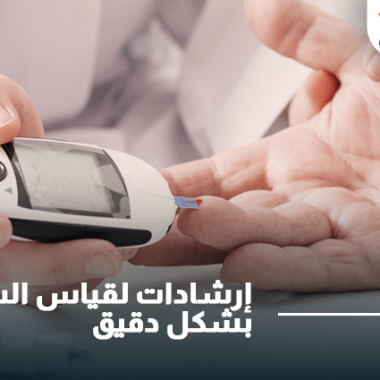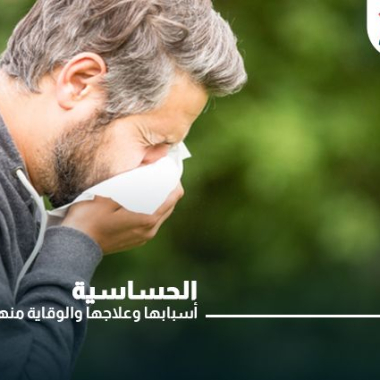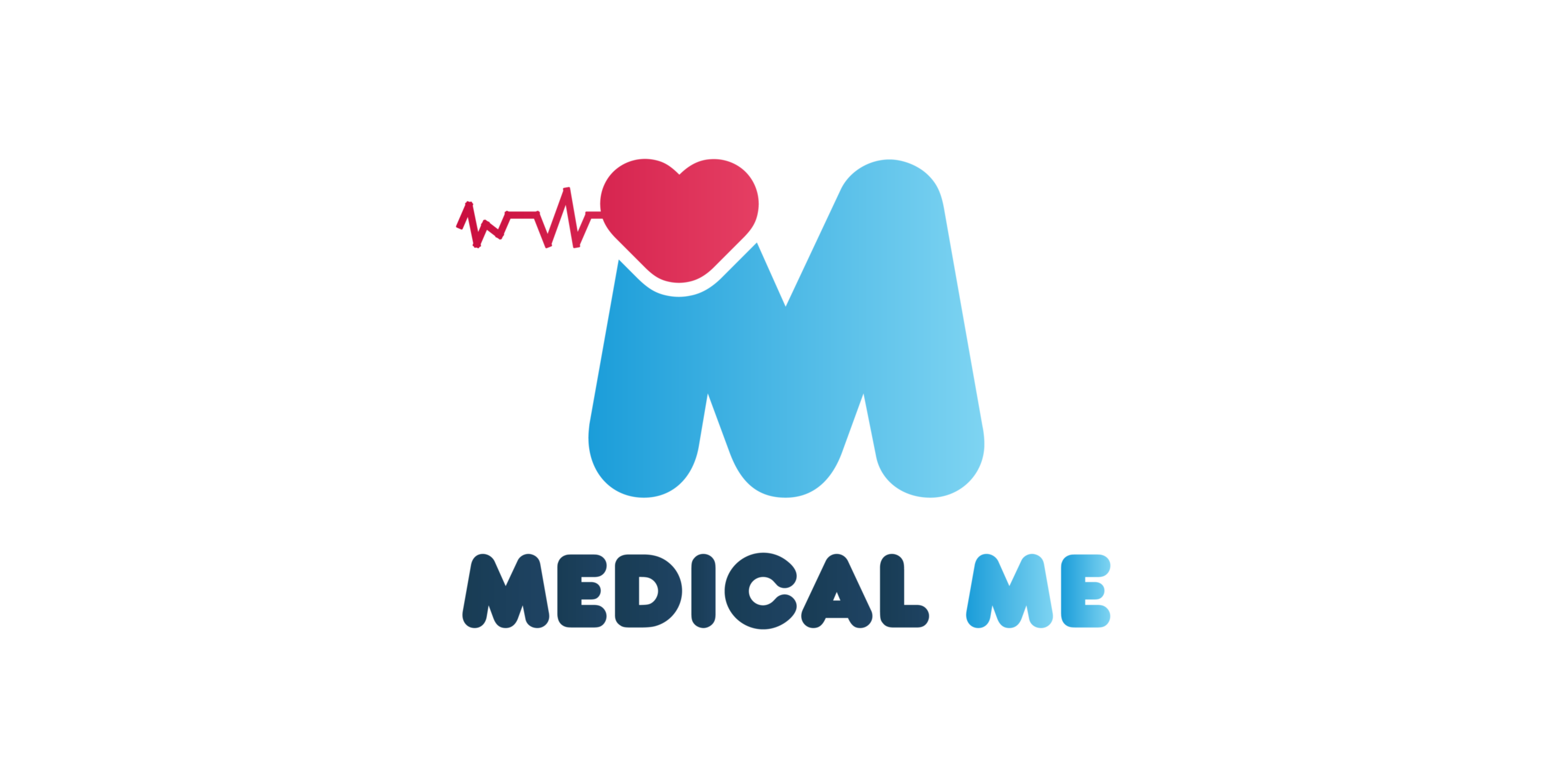فيروس كورونا:
فيروس كورونا (COVID-19) هو مرض تنفسي يسببه فيروس من عائلة الكورونا فيروس (SARS-CoV-2). تم الإبلاغ عن أول حالات إصابة بفيروس كورونا في مدينة ووهان بمقاطعة هوبي في الصين في ديسمبر 2019، وسرعان ما انتشر الفيروس في أنحاء العالم وأعلنت منظمة الصحة العالمية عنه كجائحة عالمية في مارس 2020.
تنتقل العدوى بشكل رئيسي عن طريق قطيرات اللعاب التي تنتج عندما يتحدث أو يعطس شخص مصاب بالفيروس، ويمكن أن تنتقل عن طريق ملامسة الأسطح الملوثة بالفيروس ثم لمس الوجه، خاصة العينين والأنف والفم. تتراوح أعراض الإصابة بفيروس كورونا من الأعراض الخفيفة إلى الحالات الشديدة، ويمكن أن تشمل الحمى، السعال، صعوبة التنفس، فقدان الحاستين الذوقية والشمية، وآلام في العضلات والتعب الشديد.
كانت هناك جهود عالمية كبيرة لاحتواء انتشار الفيروس والحد من تأثيره الصحي والاقتصادي على المستوى العالمي. من بين الإجراءات التي تم اتخاذها تطوير لقاحات مضادة للفيروس وتوزيعها على نطاق واسع في العديد من البلدان.
تنصح منظمة الصحة العالمية والجهات الصحية الوطنية باتباع إجراءات وقائية للحد من انتشار الفيروس، مثل غسل اليدين بانتظام وارتداء الكمامات والابتعاد الاجتماعي وتجنب المجموعات الكبيرة. إذا كان لديك أي أعراض تشبه أعراض الإصابة بفيروس كورونا، فمن الأفضل الاتصال بالجهات الصحية المحلية لإجراء فحص والحصول على التوجيهات اللازمة.
عتبر فيروسات الكورونا من الفيروسات المعدية التي تنتشر بسهولة بين الأفراد وتسبب عدوى تنفسية متنوعة، ويمكن أن تتسبب في تفشي أمراض خطيرة في بعض الحالات. من المهم اتخاذ التدابير الوقائية واتباع الإرشادات الصحية للوقاية من الإصابة بفيروسات الكورونا ونقلها للآخرين.
يُصنف أي دور برد حاليًا كورونا إلى أن يثبت العكس، ولهذا السبب أي شخص يجيله دور برد من الضروري أن يتبع هذه الخطوات
تعمل إيه لو حسيت بأعراض فيروس كورونا:
1- العزل المنزلي يعني هتلتزم البيت ومش هتنزل لأي سبب.
2- الجلوس في غرفة لوحدك منفردًا مع ارتداء الكمامة واتخاذ جميع الإجراءات الوقائية.
3- تخصيص حمام للمصاب لوحده إن أمكن ولو كان غير متاح يُعقم المريض الحمام بعد كل استخدام.
4- تخصيص أدوات خاصة للمريض لوحده ووضع الطعام على باب الغرفة دون الاتصال المباشر.
5- غسل أدوات طعام المريض وملابسه منفردة وتعقيمها وارتداء قفازات متينة قبل لمسها.
6- التخلص من مخلفات المريض بشكل صحيح عن طريق ارتداء جوانتي لاتكس ورش كيس المهملات من الخارج بالكحول ثم ربطه جيداً ووضعه في كيس آخر نظيف ثم التخلص منه.
7- تناول أكل صحي: لازم تحتوي كل وجبة على الخضروات (طبق سلطة كبير)، وفواكه خاصة الغنية بفيتامين سي مثل: الجوافة واليوسفي والبرتقال.
8- غسل الخضروات والفواكه جيداً ونقعهم في الماء والخل؛ لتجنب الإصابة بأي مرض آخر زي التيفود.
9- الإكثار من تناول المشروبات الساخنة خاصة الزنجبيل الفريش بالليمون والعسل.
10- الحفاظ على الفم رطباً وشرب الماء باستمرار.
11- تناول فيتامين سي 1 جم ،وزنك بمعدل حباية zinctron يومياً، و lactoferrin كيس على نصف كوب ماء مرتين يوميًا.
12- التواصل مع طبيب مختص عن طريق الهاتف.
13- التوجه إلى الطبيب في حالة الشعور بضيق شديد في التنفس أو سخونة وإسهال ومغص شديد فقط.
14 – قياس نسبة الأكسجين في الدم عن طريق تحليل ABG test أو باستخدام جهاز Pulse oximeter المنزلي لتحديد نسبة الأكسجين في الدم؛ لمعرفة إذا كان المريض يحتاج إلى جلسات تنفس صناعي أم لا، إذا قلت نسبة الأكسجين في الدم عن 95 mm Hg يُرجى تلقي جلسات أكسجين على الفور.
15- يمكن استخدام مولد الأكسجين المنزلي لتلقي جلسات العلاج في المنزل بالكامل دون الحاجة للبقاء في المستشفى.
16- إجراء اختبار D-Dimer للكشف عن وجود جلطات إذ إنها من الممكن أن تسبب الانسداد الرئوي الذي يؤدي إلى الوفاة، يمكنك الاتصال بمعمل تحاليل وسؤاله إذا كان بإمكانهم إرسال شخص لأخذ عينة أو التوجه إليهم بنفسك، علاج تلك الجلطات بسيط بوصف أدوية مضادة للتجلط.
Prophylactic dose if D Dimer between 500- 1000
Therapeutic dose if D Dimer > 1000
17- يمكنك عمل تحليل صورة دم كاملة للكشف عن نسبة كرات الدم البيضاء(wbcs) و lymphocytes neutrophils وCRP؛ لإن ارتفاع نسبتهم بيدل على وجود التهاب في الجسم ممكن يكون ناتج عن عدوى.
18- قرار الخروج من العزل لا يؤخذ قبل مرور 10-14 يوم بشرط اختفاء كل الأعراض في الثلاثة أيام الأخيرة خاصة السخونية.
19- أما إذا كان المريض فوق ال 60 عام و مصاب بأحد الأمراض المزمنة مثل: الضغط والسكر والربو والفشل الكلوي أو يتلقى علاج كيماوي يُفضل العزل في المستشفى من البداية.
كيف تعرف أنك مصاب بفيروس الكورونا coved-19؟
أعراض كورونا (COVID-19) يمكن أن تكون متنوعة وتختلف من شخص لآخر. يمكن أن تظهر الأعراض في غضون 2 إلى 14 يومًا بعد التعرض للفيروس. من بين الأعراض الشائعة لفيروس كورونا:
-
الحمى: زيادة في درجة حرارة الجسم، وغالباً ما تكون أعلى من 37.8 درجة مئوية.
-
السعال الجاف: سعال يشعرك بالجفاف دون إفرازات.
-
صعوبة التنفس: يمكن أن تترافق مع ضيق التنفس أو صعوبة التنفس.
-
الإرهاق: شعور بالتعب الشديد والإرهاق دون سبب واضح.
-
آلام العضلات والجسم: قد تشعر بألم في العضلات والجسم بشكل عام.
-
فقدان حاستي التذوق والشم: قد تفقد القدرة على التذوق أو الشم.
-
الإسهال والغثيان: قد تظهر أعراض معوية مثل الإسهال والغثيان.
قد يكون بعض الأشخاص مصابين بالفيروس ولديهم أعراض خفيفة أو لا تظهر عليهم أعراض على الإطلاق (حاملين للفيروس بدون أعراض). ومع ذلك، يُعتقد أن هؤلاء الأشخاص يمكنهم نقل الفيروس إلى الآخرين.
مع العلم أن هذه الأعراض ليست خاصة بفيروس كورونا فقط، وقد تكون مشابهة لأعراض نزلات البرد أو الإنفلونزا الأخرى. لذلك، في حال ظهور أي من هذه الأعراض، يُنصح بالاتصال بالجهات الصحية المحلية واتباع الإرشادات الطبية للحصول على التشخيص الدقيق واتخاذ الإجراءات اللازمة للوقاية والعلاج.
علاج كورونا:
حتى تاريخ معرفتي في سبتمبر 2021، لا يوجد علاج محدد لفيروس كورونا الجديد (COVID-19). ومع ذلك، هناك بعض الإجراءات العلاجية التي يمكن اتخاذها لمعالجة الأعراض والمساعدة في التعافي. يتم تحديد خطة العلاج حسب شدة الأعراض وحالة المريض.
إليك بعض الإجراءات العلاجية التي قد تُطبق:
-
الراحة والعناية الذاتية: يُنصح المصابون بأخذ قسط كافٍ من الراحة والاحتكام إلى العناية الذاتية، مثل الشرب بكميات كافية من الماء وتناول الأدوية المسكنة للحمى والألم عند الحاجة.
-
الحفاظ على الترطيب: يجب أن يتأكد المصابون بالفيروس من الحفاظ على الترطيب الجيد عن طريق تناول السوائل بكميات كافية.
-
استخدام الأدوية: في بعض الحالات الشديدة قد يستخدم الأطباء الأدوية المضادة للفيروسات أو العقاقير المضادة للالتهابات، وذلك حسب تقدير الطبيب المعالج.
-
التنفس الصناعي: قد يحتاج بعض المرضى الذين يعانون من صعوبة في التنفس إلى الحصول على دعم تنفسي صناعي.
من الأهمية بمكان أن تتم معالجة حالات كوفيد-19 في المستشفيات أو تحت إشراف الأطباء المختصين. وللوقاية من الإصابة بالفيروس، ينصح باتباع إرشادات الصحة العامة والقواعد الصحية المعتمدة من قبل الجهات الصحية المحلية ومنظمة الصحة العالمية، مثل ارتداء الكمامات وغسل اليدين بانتظام والابتعاد الاجتماعي. كما أن تطعيمات اللقاح المضادة لفيروس كورونا تعتبر أحد السبل الفعالة للحد من انتشار الفيروس وخطورته.
اعراض كورونا الجديدة:
حتى تاريخ معرفتي في سبتمبر 2021، كانت الأعراض الشائعة لفيروس كورونا (COVID-19) هي الحمى، السعال الجاف، صعوبة التنفس، آلام العضلات، فقدان حاستي التذوق والشم، الإرهاق، وبعض الأعراض المعوية مثل الإسهال والغثيان.
ومع ذلك، يُذكر أن البحث والدراسات عن فيروس كورونا ما زالت قائمة ويمكن أن تظهر معلومات جديدة بشأن المرض، بما في ذلك الأعراض المحتملة الأخرى. قد يتم اكتشاف أعراض جديدة أو تم توثيقها منذ ذلك الحين، ولذلك من المهم مواكبة آخر التحديثات الطبية والمعلومات الصادرة عن الجهات الصحية الرسمية في بلدك لمعرفة أحدث المستجدات بشأن كوفيد-19 وأعراضه.
إذا كنت تعتقد أنك تعاني من أي أعراض غير معتادة أو قلق حول صحتك، فمن الضروري التواصل مع الجهات الصحية المحلية أو طبيبك للحصول على تقييم وتشخيص دقيق واتخاذ الإجراءات اللازمة.
تتطور المعرفة والعلاجات باستمرار في مواجهة جائحة كوفيد-19، لذلك يُنصح بمواكبة آخر التحديثات الطبية والإرشادات الصادرة عن الجهات الصحية المعترف بها في بلدك. في حالة الشك بأنك مصاب بكوفيد-19 أو تعرضت للعدوى، يُنصح بالاتصال بالجهات الصحية المحلية للحصول على التوجيهات والتشخيص الدقيق والعلاج المناسب.
كيفية الوقاية من فيروس كورونا:
الوقاية من فيروس كورونا (COVID-19) تتضمن اتباع مجموعة من الإجراءات الوقائية للحد من انتشار الفيروس وحماية نفسك والآخرين. إليك بعض الإرشادات الهامة للوقاية من فيروس كورونا:
-
ارتداء الكمامة: ارتدِ الكمامة الطبية أو القماشية عندما تكون في أماكن عامة أو في مجموعات من الأشخاص. الكمامة تساعد في منع انتقال قطرات اللعاب التي قد تحتوي على الفيروس عند الكحة أو العطس.
-
غسل اليدين بانتظام: اغسل يديك جيدًا بالماء والصابون لمدة لا تقل عن 20 ثانية على الأقل. إذا لم تكن هناك مياه وصابون متاحة، يمكن استخدام معقم لليدين يحتوي على نسبة 60٪ على الأقل من الكحول.
-
تجنب لمس الوجه: حاول تجنب لمس وجهك، خاصة العينين والأنف والفم، إلا إذا كانت يديك نظيفة. يمكن أن يساعد هذا في منع دخول الفيروس إلى جسمك.
-
الابتعاد الاجتماعي: حافظ على مسافة مسموح بها (مثل متر واحد على الأقل) بينك وبين الآخرين، وخاصة إذا كانوا يسعلون أو يعطسون.
-
تجنب التجمعات الكبيرة: حاول تجنب الحضور في المناسبات الكبيرة أو المجمعات التي تجمع العديد من الأشخاص.
-
تهوية المكان: في المنازل والمكاتب والأماكن العامة، حاول تهوية المكان بانتظام عن طريق فتح النوافذ والأبواب.
-
التبليغ عن الأعراض: إذا كنت تعاني من أي أعراض تشبه أعراض فيروس كورونا، كالحمى والسعال وصعوبة التنفس، فاتصل بالجهات الصحية المحلية واتبع التعليمات الطبية.
-
أخذ اللقاح: حاول أخذ لقاح كوفيد-19 الذي يتم توزيعه عندما يصبح متاحًا لك. اللقاحات تساهم في حمايةك من الإصابة بأشكال شديدة من المرض.
تذكر أن هذه الإجراءات الوقائية هي جزء من الجهود العالمية للحد من انتشار فيروس كورونا، ويجب اتباعها بدقة للحفاظ على سلامتك وسلامة المجتمع من حولك.
أشار البعض أن مرض الكورونا من الممكن أن يظهر على هيئة أعراض خاصة بالجهاز الهضمي مثل الإسهال.

تناول الماء الدافيء مع الليمون يحول دون وصول الفيروس إلى الرئتين؛ لذلك إذا علمت أنك خالطت حالة إيجابية يمكنك الإكثار من تناول هذا المشروب.
أثبتت الدراسات الحديثة أن الرقم الهيدروجيني pH لفيروس كورونا تتراوح بين 5.5 إلى 8.5 وللقضاء على الفيروس يجب تناول أطعمة قلوية pH الخاصة بها أعلى من 8.5 مثل:
- الليمون الأصفر pH تساوي 8.2.
- المندرين pH يساوي 8.5.
- المانجو pH تساوي 8.7.
- البرتقال pH تساوي 9.2.
- الليمون الأخضر pH تساوي 9.9.
- الأناناس pH تساوي 12.7.
- الثوم pH تساوي 13.2.
- الأفوكادو pH تساوي 15.6.
- الجرجير pH تساوي 22.7.
ولأن الجرجير هو أعلى نسبة حموضة فهو الأكثر مقاومة لفيروس كورونا المستجد.
يمكنك قراءة المزيد عن :
علاج التهاب الحلق وأسبابه |علاج التهاب الحلق للأطفال بدون مضاد
إزاي تحمي نفسك من ضيق التنفس ونقص نسبة الأكسجين بسبب كورونا؟


























